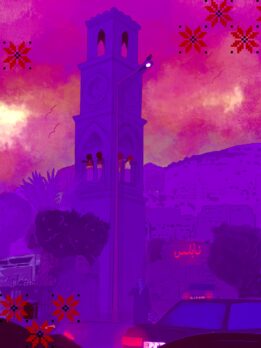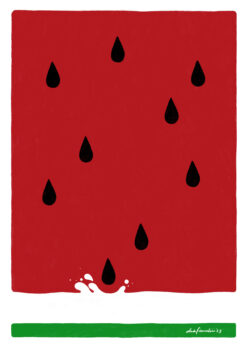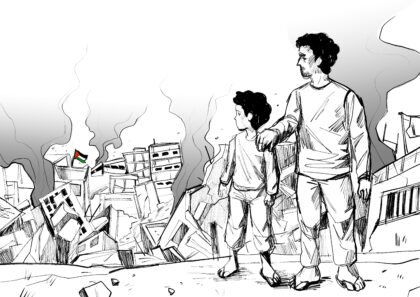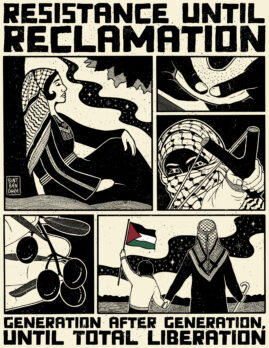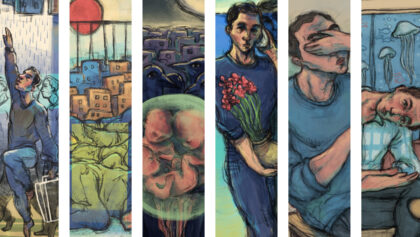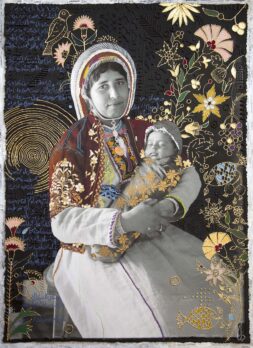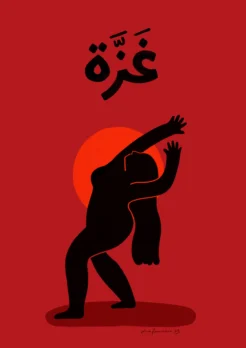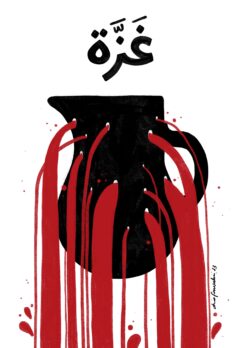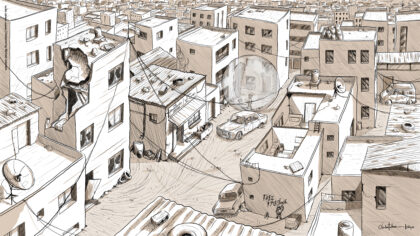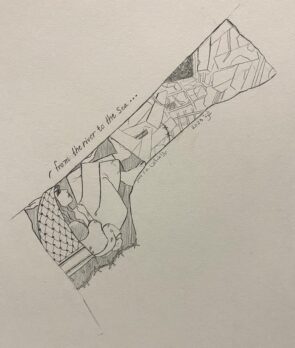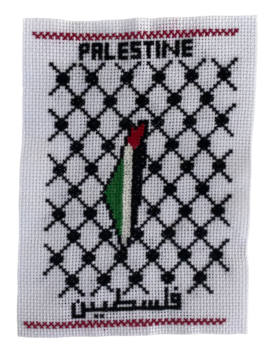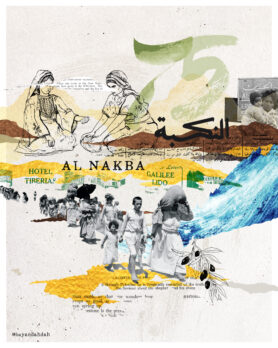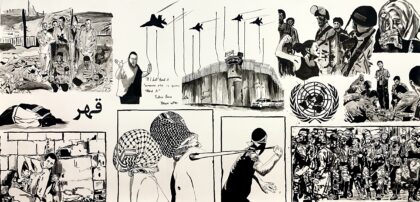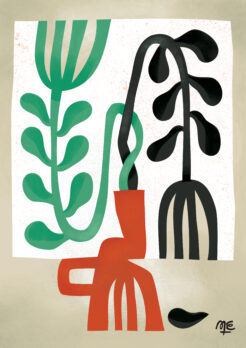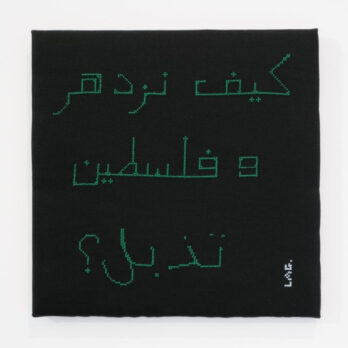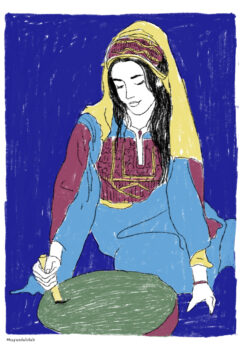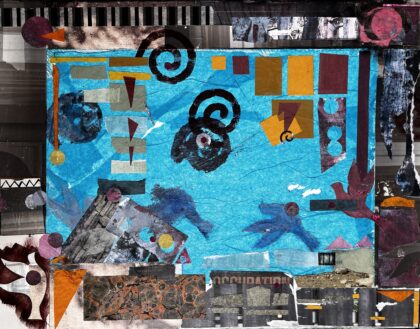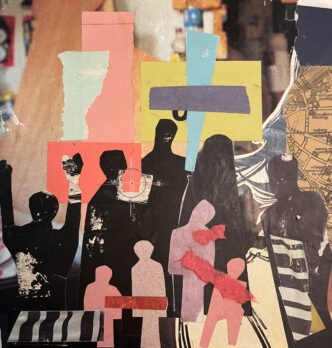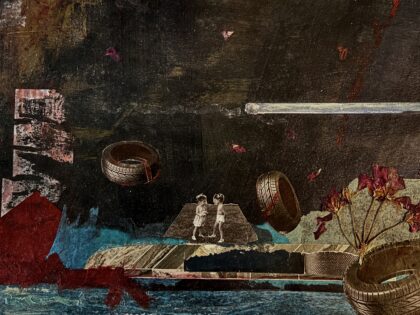 Artwork by Fadia Jawdat
Artwork by Fadia Jawdat
“Please, do not leave us. Stay with us.”
Full of tears, and with a breaking voice, a 16-year-old desperately asked her brother not to leave home to bring water from a UNRWA school, fearing he wouldn’t come back.
“What we are at now only happened some 75 years ago – that was called the Nakba. Now, it is more complicated, and is tougher than any time before.”
A 96-year old man evacuated, again. Israeli authorities told Gaza City’s population to evacuate and flee to Khan Younis in the south of the Gaza Strip. Thousands of Gazan civilians were caught in denial of what they were being instructed to do, with some referring to it as another Nakba.
“My beloved son, even if we die, remember us. Look at our photos. Have us in your thoughts, forever.” As she evacuates Gaza, a 56-year old mother uttered with a sad voice to her son calling from outside Gaza to check in on his family.
“Tomorrow, I am supposed to turn 17. This birthday anniversary will be different. I was planning on celebrating with my friends at school, but now I only text them to ensure they’re still alive.” She took a deep breath and started to sob, reminiscing on happy days with her school friends.
We built memories with our families here. Now, we see nothing that reminds us of the beautiful days — everything is gone.”
In the Gaza Strip, media covered news about the deaths of thousands of civilian people. Each of them had a story, and a whole life that was taken by war. Other thousands of memories were buried underneath the rubble.
“Look at my dog, he is terrified all the time. He is shaking. End this war.” A child was seen, carrying his little puppy that survived a missile strike, shouting.
“Yesterday, my wife gave birth to who is now our baby son, but war hindered us from giving him the necessary vaccines; no equipment nor workers are there. My baby’s life is now at risk.”
At a hospital-turned-housing-shelter, a father wept, cradling his newborn son at the gate of Al Shifa hospital.
Shortage of medicines, water, food, and fuel continue to threaten the operation of the Strip’s hospitals. These hospitals were also a shelter for thousands of civilians, who evacuated from their houses.
“War makes my heartbeat even higher because I am always stressed. I already have tachycardia; now it is getting worse, and the persistence of war jeopardizes my life.” A 26-year old man speaks about health conditions exacerbated by the conditions of war.
“My little daughter suffers from diabetes. There is no medicine available,” a woman in Gaza says. “I do not know where to go. End war. Please.”
These are only a few lines heard from a few civilians, but thousands of other stories are still untold.
Editors Note: This piece has been edited since its original publication on October 28, 2023.
